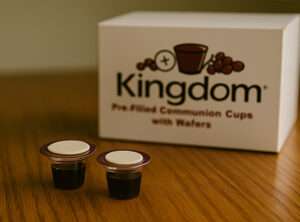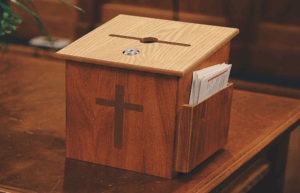Communion is one of the most meaningful times in a believer’s life. It’s a moment to remember Jesus’ sacrifice and to celebrate the grace that unites us as His family. For parents, it’s also a wonderful opportunity to teach children why Communion matters and how to take part in it with faith and understanding. This guide will help you explain the meaning of Communion, prepare your child’s heart, and make this time of worship special for your family.
Why Communion Matters for Families
Communion reminds us of Jesus’ love and the promise of salvation. When children understand that the bread and cup symbolize His body and blood, they begin to see Communion not as a ritual, but as a personal act of gratitude and faith.
Here’s what you can share with your child:
The bread reminds us of Jesus’ body, given for us. The cup reminds us of His blood, poured out for forgiveness. We take Communion to remember, give thanks, and renew our faith. Encourage your child to see Communion as a time of reflection — a moment to think about what Jesus has done and how much He loves them.
When Is a Child Ready for Communion?

Each church handles Communion differently, but the key is spiritual readiness. Children should understand who Jesus is and what it means to follow Him before participating. Parents can talk with their pastor or children’s ministry leader about how their church welcomes kids to the Lord’s Table.
A child may be ready when they:
- Have accepted Jesus as Lord and Savior.
- Can explain, in their own words, why Jesus died for us.
- Show reverence during prayer or worship.
If your church uses Kingdom Prefilled Communion Cups, this can also make the experience simple and reverent for families and kids’ ministry groups, giving each child their own moment to participate safely and respectfully.
Teaching Reverence and Respect

Helping children understand the seriousness of Communion begins at home. You can prepare their hearts by showing them what it means to approach the Lord’s Table with humility and thankfulness.
Ways to teach reverence:
- Pray together before Communion.
- Read 1 Corinthians 11:23–26 as a family.
- Explain that we take Communion to honor Jesus and to remember His gift of salvation.
- Encourage quiet reflection, gratitude, and prayer during the service.
Children learn best by example, so let them see you take Communion thoughtfully and with joy.
Talking About Communion at Home

Creating conversations about faith at home helps children connect what they see in church to their own lives.
Simple ways to start:
- Ask, “Why do you think Jesus wants us to remember Him with bread and juice?”
- Read the story of the Last Supper in Luke 22:14–20.
- Share a personal story about what Communion means to you.
You can even have a short family devotion before Communion Sunday to help your kids prepare their hearts.
Making Communion Special for Your Family

Communion doesn’t have to be limited to Sunday services. Some families also take Communion together during holidays, prayer nights, or home Bible studies. It’s a beautiful way to bring your family closer to God.
Ideas to make it meaningful:
- Play worship music and read a short Scripture.
- Use prefilled cups from AllCommunion.com for easy setup.
- End with a family prayer of thanks.
The goal isn’t to make Communion fancy, it’s to keep it heartfelt.
Ready to create your own family Communion moment?
Browse our Communion Sets and Prefilled Cups to make preparation easy and meaningful for everyone.
Common Mistakes to Avoid
- Treating Communion as just another tradition rather than a personal moment of faith.
- Pressuring children before they understand its meaning.
- Forgetting to explain the “why” behind the practice.
Frequently Asked Questions (FAQs)
Q1. What does Communion symbolize?
It represents Jesus’ body and blood — a reminder of His sacrifice for our forgiveness and salvation.
Q2. How do I know my child is ready?
If your child understands who Jesus is and has chosen to follow Him, they are likely ready to participate.
Q3. Can kids take Communion at every church?
It depends on each church’s practice. Ask your pastor or children’s ministry leader for guidance.
Q4. How can I make Communion meaningful at home?
Pray, discuss, and find what fits your worship style and resources. The goal is to serve with joy and reverence.








